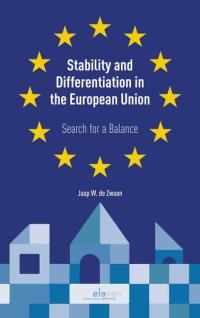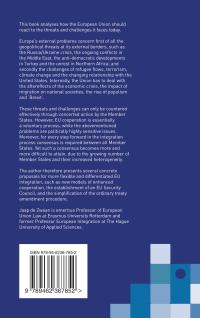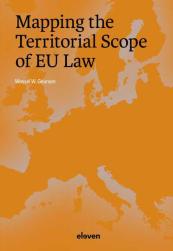Stability and Differentiation in the European Union
Search for a Balance
This book analyses how the European Union should react to the threats and challenges it faces today.
Europe’s external problems concern first of all the geopolitical threats at its external borders, such as the Russia/Ukraine crisis, the ongoing conflicts in the Middle East, the anti-democratic developments in Turkey and the unrest in Northern Africa; and secondly the challenges of refugee flows, terrorism, climate change and the changing relationship with the United States. Internally, the Union has to deal with the aftereffects of the economic crisis, the impact of migration on national societies, the rise of populism and ‘Brexit’.
These threats and challenges can only be countered effectively through concerted action by the Member States. However, EU cooperation is essentially a voluntary process, while the abovementioned problems are politically highly sensitive issues. Moreover, for every step forward in the integration process consensus is required between all Member States. Yet such a consensus becomes more and more difficult to attain, due to the growing number of Member States and their increased heterogeneity.
The author therefore presents several concrete proposals for more flexible and differentiated EU integration, such as new models of enhanced cooperation, the establishment of an EU Security Council, and the simplification of the ordinary treaty amendment procedure.









